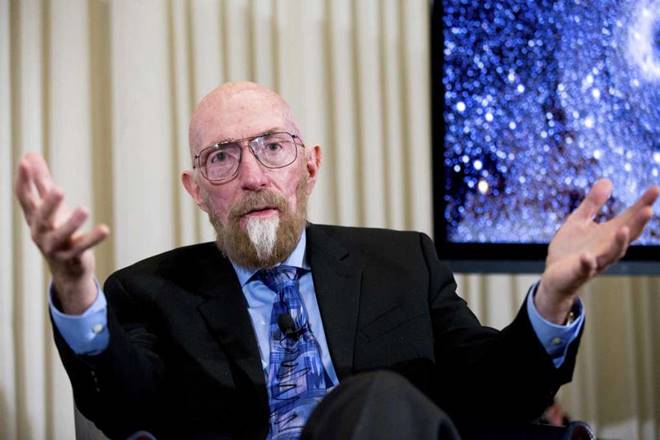Kip Thorne is one of the three American physicists who has won the Nobel Prize in Physics. Thorne, along with Rainer Weiss and Barry Barish, has been awarded the Nobel Prize for ‘for decisive contributions to the LIGO detector and the observation of gravitational waves’. These three physicists have played a major role in the ‘Laser Interferometer Gravitational-Wave Observatory’ experiment, which first observed the gravitational waves in the year 2015. Thorne, who is a theoretical professor of physics at California Institute of Technology, also has a special connection with Hollywood. He was a part of the famous Christopher Nolan film, Interstellar.
Thorne, a longtime friend of world-famous theoretical physicist Stephen Hawking, worked on the LIGO experiment which discovered gravitational waves in spacetime, a feature first predicted by Albert Einstein. Thorne’s contribution in the project was to make key predictions on what the waves will look like and how to identify them. This experiment is essentially a part of the astrophysical implications of Einstein’s general theory of relativity.
You may like to watch Kip Thorne’s Science behind Interstellar:
Born in Utah, on June 1, 1940, Kip Thorne went on to become one of the youngest professors in the history of the California Institute of Technology. However, after a long career, in 2009 he resigned as the Feynman Professor to write and contribute to movies. Interestingly, his first film was Christopher Nolan’s Interstellar. He had also written a book in 2014 on the process which went behind making the movie, and it is called “The Science of Interstellar”.
Gravitational wave scientists Rainer Weiss, Barry Barish and Kip Thorne win 2017 Nobel Prize for Physics
Other than movies, Thorne has written and edited books on subjects like gravitational theory and high-energy astrophysics. He wrote his most famous book “Black Holes and Time Warps: Einstein’s Outrageous Legacy” in 1994, and it received many awards. In the film The Theory of Everything based on the life of Stephen Hawking, Thorne was portrayed by actor Enzo Cilenti.


